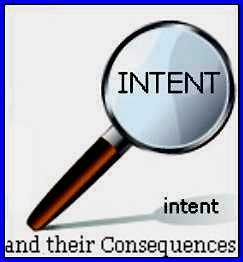The Effects of the Word “Void” on Will
A Manitoba case Roelofs Estate, Re 2004 MBQB 280 discusses the legal effect of a testator writing the word VOID on his will, and the Court’s finding that the curative effect of their legislation applied not only to curing defects in wills and codicils, but also to Revocations of a will. Once again, it is likely that under WESA, this case rationale would be followed in British Columbia. Prior to WESA the written word Void would have been disregarded by the Courts.
Under WESA and the curative effects of section 58, the Manitoba Roelofs case confirmed that the curative effects of the Court to find a will valid, applied equally to determine that a will was revoked where it was clear that the testator intended to revoke the will.
Facts of Case:
The testator had three children when he married for a second time . He made will in 1985 leaving the entirety of his estate to his new wife ,but he and his wife separated in 1987 and the testator entered into a new relationship.
The testator made will in 1995 in which he purported to revoke all prior wills and left estate to new spouse .
The second will however was not made in accordance with Wills Act as there was only one witness.
The testator wrote word “void” on original and copies of second will.
The Public Trustee was made committee of the testator pursuant to Order of Committeeship in 2001. The testator died in 2004 leaving an estate consisting of cash balance of approximately $16,000, and the Public Trustee applied to be appointed litigation administrator of the estate and for advice and direction concerning the distribution of the estate.
The Court allowed the application holding that the mere writing of word “void” was not in accordance with Act, which requires signature of testator and two witnesses, BUT
Section 23 of the Manitoba Wills Act applied not only to testamentary intentions of deceased but intention of deceased to revoke, alter or revive will of deceased .
Accordingly, the revocation was as effective as though it had been executed in compliance with Act .
The writing of the word “void” on both original and copies of will clearly showed intention that will was to be cancelled and of no further effect.
The Revocation was unquestionably in the testator’s handwriting and nothing could have been added by signature
The previous will was not revived by mere revocation of second will , as both wills were revoked and estate went on an intestacy, which meant that it would go to his natural children of the testator as his first wife gave up all statutory claims to estate under their separation agreement .
Legal Discussion
Because I have declared the second will to be valid, notwithstanding the non-compliance with the Act, it follows that this revocation is also valid and has the effect of revoking the previous will in favour of the wife of the deceased, Josephine Roelofs.
12 However, the complication is that it appears that the second will has been revoked by the act of the deceased writing the word “void” on the face page.
13 According to s. 16 of the Act (supra), a will can be revoked by a later writing declaring an intention to revoke it and made in accordance with the provisions of the Act. The mere writing of the word “void” was not in accordance with the Act, which requires the signature of the testator and two witnesses. However s. 23 applies not only to the testamentary intentions of a deceased but the intention of a deceased to “revoke, alter or revive” a will of the deceased and I would order that the revocation is as effective as though it had been executed in compliance with the Act because I am satisfied that it was the clear intention of the deceased to revoke the will.
14 The writing of the word “void” on both the original and the two copies of the will clearly shows an intention that the will is to be cancelled and of no further effect. A precedent for this is the case of Canada Trust Co. v. Foster, [1991] O.J. No. 3475 (Ont. Gen. Div.), where the testatrix wrote on her will “Cancelled/Lily Downey”. The court held that the will had been revoked and the court observed:
¶10 The shorter Oxford English Dictionary, vol. 1, at p. 274 contains definitions of the word “cancelled”, some of which are as follows: “to render void; to obliterate; to put an end to; to annul by so marking.” Applying these definitions to this case would mean that the deceased intended to void her August 3, 1983 will when she used the word “cancel” or “cancelled”. …
15 In the instant case, the intention of the deceased is made even more plain by the evidence of Mr. Heywood as to the comments and demeanor of the deceased when he wrote on the will and the copies.
16 It is true that the deceased did not sign the purported revocation but it was unquestionably in his handwriting and nothing would have been added by a signature.
17 The previous will was revoked by the second will and was not revived by the mere revocation of the second will. See Canada Trust Co. v. Foster (supra). Under s. 20(1) of the Act, a will that has been in any manner revoked is revived only (a) by a will made in accordance with the Act or (b) by a codicil made in accordance with the Act that shows an intention to revive the will or part that was revoked.
18 The result is that both wills are revoked and the estate goes as on an intestacy, which means that it will go to the natural children of the deceased. Under the separation agreement between the deceased and his wife, the wife gave up all statutory claims to the estate.





